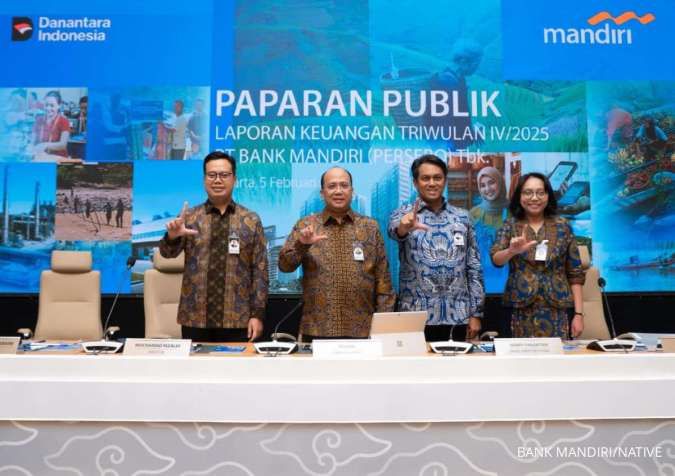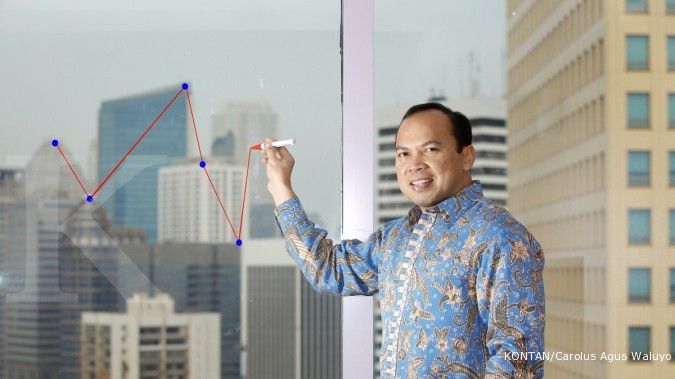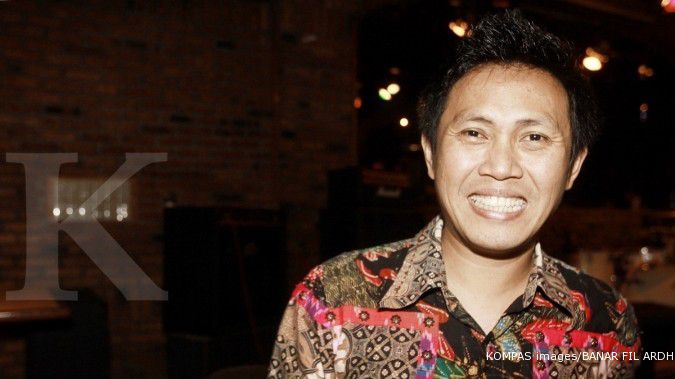With regulations designed to ensure that every child in Finland receives the best quality education, the educational system in the Northern European country is considered among the best in the world. Finland’s Education Minister, Krista Kiuru, talked to journalists about what Indonesia could learn from Finland’s experience during her visit to Jakarta last week. The following is an excerpt from her interview with The Jakarta Post’s Nadya Natahadibrata. Question: What percentage of your national budget is spent on education? Answer: Finland allocates a lot of money for education compared to other countries, but I can’t say exactly what the percentage is. I think around 20 percent of your state budget is put toward education. It’s a bit complicated because the municipalities in Finland are responsible for basic services, and the school system is considered a basic service. So, the state does not organize the studies at elementary or junior high schools; the local authorities take care of that. We have a very complex system. We give local authorities the right to set taxation for health care and the school system and so on. Therefore, although some money is given by the state for them to organize those basic services, they primarily collect their own money through taxes. So, towns and local authorities organize their educational services but we have a national curriculum that they have to follow. During the ongoing economic crisis in Europe, how is it that Finland is still able to offer free education to everyone, including foreigners? We were hit very badly by the economic crisis, so we need to balance the budget. I’m very happy to say that, although we did have to cut some expenses in a few educational branches, the political will was such that we decided not to take any money out of the field of educating our future generation. They are the ones who are now in school, and schools are all about raising the future. It would be stupid to cut the budget for their education. But Finnish education has not always been like this. There was major reform in the early 1970s. Can you tell us more about how you changed the system and why? We had a strong mandate in those days and we wanted to tackle the reform, which was proposed in the 1970s. I’m very happy that the values that I presented are what we use today. Our system relies on one value: equality. When we look at first-year students, 7-year-olds, we believe that we cannot know if this one is going to be a famous singer, if that one will be a future president or if another will be the best mother in Finnish history. The fact is that we don’t know at the beginning what skills they have, so we have to make the most out of them. We don’t know what they are going to be like in the future. Therefore, we don’t believe in elite schools; we don’t believe that only the most highly qualified students will make the biggest difference to society. If we want to develop society as a whole, we have to educate the whole nation — even the least able. International surveys like Pisa have proved that this idea, which we adopted in the 1970s, the idea of equality, gives the best results. Is it possible to adopt your educational system without good quality teachers? I can say that I’ll be more than happy to help because we have very good teacher education. When we talk about education, we have to include culture because education comes attached to specific cultural surroundings and circumstances. But, at the same time, I believe that one of the greatest challenges but also one of the greatest successes is if you have good teacher training, as that leads to a better education system. You may wonder why education in Finland is so good. It’s because we put a lot of resources into it and we emphasize teachers’ education. Teachers in Finland have master’s degrees. Martti Ahtisaari, for instance, the former president of Finland and Nobel prize winner, he had previously been an elementary school teacher. All the skills he learned and the master’s degree he had were as a result of his teaching education in Finland. The same goes for me. I used to be an upper secondary high school teacher; so, I would say that we teachers are not too bad. In Finland, the best and the brightest prefer to become teachers rather than doctors or lawyers. Is that the secret of Finland’s educational success? The secret is that we take people who have a passion to be teachers because teaching is all about offering possibilities to someone for growth; it’s about paving the way for someone else. So, I believe that teaching is an art; you create something out of someone else and feel proud of the results that someone else achieves.
What Indonesia can learn from Finland
With regulations designed to ensure that every child in Finland receives the best quality education, the educational system in the Northern European country is considered among the best in the world. Finland’s Education Minister, Krista Kiuru, talked to journalists about what Indonesia could learn from Finland’s experience during her visit to Jakarta last week. The following is an excerpt from her interview with The Jakarta Post’s Nadya Natahadibrata. Question: What percentage of your national budget is spent on education? Answer: Finland allocates a lot of money for education compared to other countries, but I can’t say exactly what the percentage is. I think around 20 percent of your state budget is put toward education. It’s a bit complicated because the municipalities in Finland are responsible for basic services, and the school system is considered a basic service. So, the state does not organize the studies at elementary or junior high schools; the local authorities take care of that. We have a very complex system. We give local authorities the right to set taxation for health care and the school system and so on. Therefore, although some money is given by the state for them to organize those basic services, they primarily collect their own money through taxes. So, towns and local authorities organize their educational services but we have a national curriculum that they have to follow. During the ongoing economic crisis in Europe, how is it that Finland is still able to offer free education to everyone, including foreigners? We were hit very badly by the economic crisis, so we need to balance the budget. I’m very happy to say that, although we did have to cut some expenses in a few educational branches, the political will was such that we decided not to take any money out of the field of educating our future generation. They are the ones who are now in school, and schools are all about raising the future. It would be stupid to cut the budget for their education. But Finnish education has not always been like this. There was major reform in the early 1970s. Can you tell us more about how you changed the system and why? We had a strong mandate in those days and we wanted to tackle the reform, which was proposed in the 1970s. I’m very happy that the values that I presented are what we use today. Our system relies on one value: equality. When we look at first-year students, 7-year-olds, we believe that we cannot know if this one is going to be a famous singer, if that one will be a future president or if another will be the best mother in Finnish history. The fact is that we don’t know at the beginning what skills they have, so we have to make the most out of them. We don’t know what they are going to be like in the future. Therefore, we don’t believe in elite schools; we don’t believe that only the most highly qualified students will make the biggest difference to society. If we want to develop society as a whole, we have to educate the whole nation — even the least able. International surveys like Pisa have proved that this idea, which we adopted in the 1970s, the idea of equality, gives the best results. Is it possible to adopt your educational system without good quality teachers? I can say that I’ll be more than happy to help because we have very good teacher education. When we talk about education, we have to include culture because education comes attached to specific cultural surroundings and circumstances. But, at the same time, I believe that one of the greatest challenges but also one of the greatest successes is if you have good teacher training, as that leads to a better education system. You may wonder why education in Finland is so good. It’s because we put a lot of resources into it and we emphasize teachers’ education. Teachers in Finland have master’s degrees. Martti Ahtisaari, for instance, the former president of Finland and Nobel prize winner, he had previously been an elementary school teacher. All the skills he learned and the master’s degree he had were as a result of his teaching education in Finland. The same goes for me. I used to be an upper secondary high school teacher; so, I would say that we teachers are not too bad. In Finland, the best and the brightest prefer to become teachers rather than doctors or lawyers. Is that the secret of Finland’s educational success? The secret is that we take people who have a passion to be teachers because teaching is all about offering possibilities to someone for growth; it’s about paving the way for someone else. So, I believe that teaching is an art; you create something out of someone else and feel proud of the results that someone else achieves.





